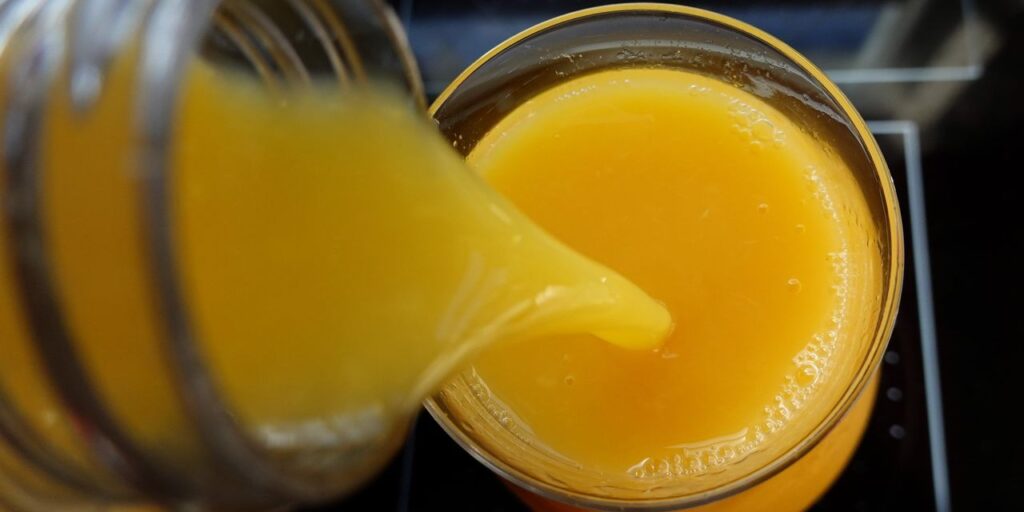Orange-juice futures posted a drop of nearly 11% for the week on Friday, the largest such percentage decline since late March 2017, just days after settling at their highest price on record.
“The weather is good and the hurricane season is almost over,” Jack Scoville, vice president of The Price Futures Group and author of the Grains and Softs Report, told MarketWatch on Friday.
The Atlantic hurricane season runs from June 1 through Nov. 30. It can impact crops in the region, and Florida is among the top orange growing states. The season started off strongly but was relatively quiet in October.
The speculators in the market tried to take profits and “found out that there was no buying interest under the market, so it went down hard,” said Scoville.
The most-active January contract for frozen concentrated orange juice posted a weekly loss of 10.6% on Friday, the worst weekly performance since the week ended March 31, 2017, according to Dow Jones Market Data. It settled Friday at $3.4925 a pound on the ICE Futures U.S. exchange, down 1.4%, for the session, after dropping 5.2% Thursday.
The big mover among the futures contracts is November, said Darin Newsom, Barchart senior market analyst.
That contract was down around 14% from this past Tuesday’s high of $4.3195, he said. The first notice day, the day buyers of futures contracts receive a notice that a seller intends to make delivery of a commodity, was Nov. 1, he said.
Given that, anyone holding long futures who didn’t want to take delivery had to get out of their position — leading to a sharp selloff, Newsom explained. The January contract saw some “spillover selling” from the November contracts.
Prices for frozen orange juice had marked a record high settlement of $4.008 a pound on Oct. 30. They trade a whopping 71% higher year to date, on track for the best year since 2009.
It’s “hard to buy when a market goes to new all-time highs,” said Newsom.
Key reasons for the rally are post-COVID demand for vitamin C, and the worst Florida citrus crop since the 1920s, due to a disease called citrus greening, said James Roemer, publisher of WeatherWealth newsletter.
However, the lack of Florida hurricanes this fall and a potentially large 2024 orange crop in Brazil, the world’s largest producer, are “potentially bearish longer term,” he said.
Read the full article here

